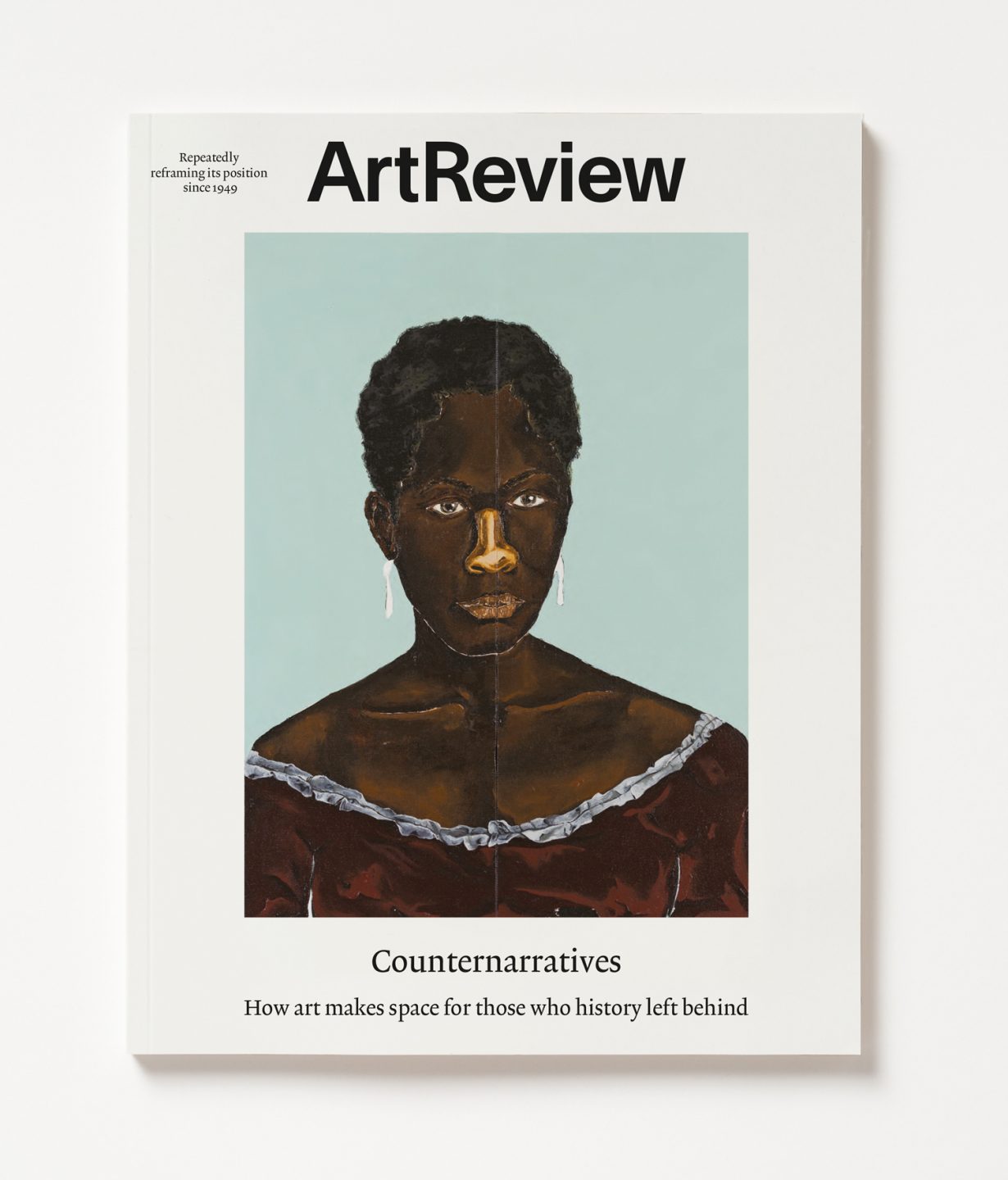
***Subscribe now or get your copy from our new online shop***
For good or ill, the world is an interconnected place. The September issue of ArtReview explores some of the routes and channels – historic, personal, economic, ecological – that make up this unbalanced network, through the work of artists and thinkers who reflect on a global reality, and how we got to where we are.
In her films and video projects Bouchra Khalili has long sought out the forgotten histories of liberation movements, to restore the memory of radical politics in North Africa and the Middle East, hooking them back into present-day struggles, from Algeria to Palestine. As Stephanie Bailey writes, Khalili’s ‘conviction to return to the region’s history amid the Arab uprisings has not only been about decolonising narratives and representations in the West, but confronting the oppressive regimes that have been produced beyond it’.
The political theorist and historian Françoise Vergès, meanwhile, has pursued a decades-long campaign to excavate the forgotten history of France’s postcolonial politics. In a new book, A Programme of Absolute Disorder: Decolonizing the Museum, she turns her attention to the controversies that rage over the politics of Western museums. Talking to Sarah Jilani, Vergès explores the problems that come from demanding the museum’s reform while leaving its underlying structures unchanged. “When people in power understand that a certain form of inclusion does not threaten them,” she tells Jilani, “they are ready for it. So we must acknowledge that recognition is not the end of the fight.”
If the museum is a place both of remembering and repression, its relationship to historical facts is always unstable. But as Izabella Scott asks in her essay in the September issue, can there be history without facts? Surveying the works of artists such as Mercedes Azpilicueta, Shannon Alonzo and Dalton Paula (Paula’s painting Zeferina, 2018, appears on this month’s cover), Scott examines how artists deploy forms of fiction to rework and augment the often fragmented and biased historical records, to recreate the possible lives of queer, Indigenous and colonised subjects otherwise lost, to ‘create a missing ancestry by recovering forgotten lives’.
Elsewhere in the issue, London-based duo Revital Cohen and Tuur Van Balen talk to Chris Fite-Wassilak about how their complex, ironic work loops global supply chains back onto themselves, revealing the human and social histories of commodities and materials; Helen Charman revisits the self-critical political films of Marguerite Duras; and Louise Benson isn’t convinced by Oscar Murillo’s kid-friendly, parent-frustrating Tate installation. Also in this issue, reviews of Pacita Abad’s subaquatic visions at Tina Kim Gallery, New York; the problems of status anxiety explored in Namedropping at Mona, Tasmania; the future-ruin visions of Minoru Nomata at White Cube, London; and many more solo and group shows globally. Plus, picking over their recent holiday readings, our critics pull out, among others, Roger Crowley’s Spice, a history of how the trade of our familiar aromatics changed the world, and Gathering of Strangers, Tate director Maria Balshaw’s rumination on the future of the museum. And a new series of one-off comic commissions continues with a cryptic encounter with an Elven lord, by Joseph Kelley.
***Subscribe now or get your copy from our new online shop***